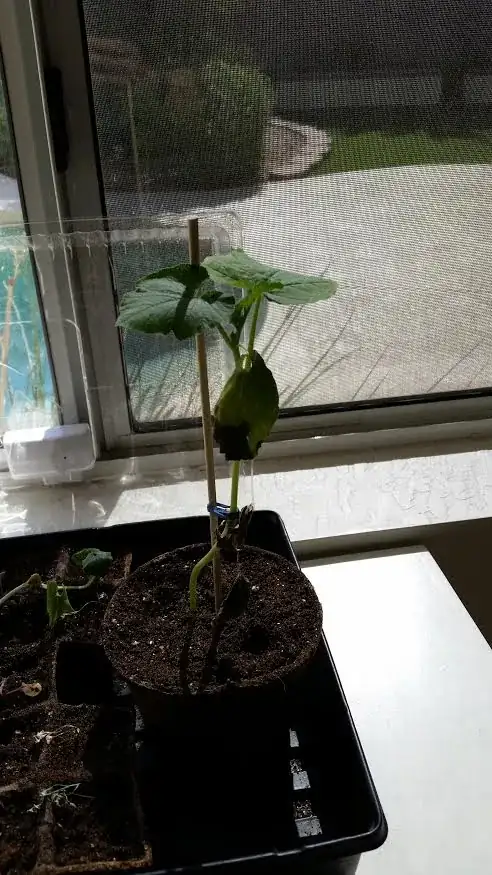From what I understand, squash generally don't like being transplanted. So, the odds of it being stressed are high. It's also likely that the soil may need more phosphorus and/or potassium.
Since transplanting can be hard on squash, it may be stunted if the squash were bothered particularly by the multiple transplants. I had a squash that seemed to be stunted from a transplant. Its roots seemed to be rotting when I finally pulled it up (although it had sufficient nutrients). It did not, however, have enough sun.
When it's been a few days after the transplant, lots of sun should be good for your squash.
If there's a fungal infection in your roots, I'm not sure how people generally recommend dealing with that, but I imagine something like copper might be able to help, since it's anti-fungal. Here's a link from a company's website that I've shopped at, which seems to have great quality stuff (and free, fast, shipping). I haven't tried their copper though.
It's also possible, from what I see in the picture, that your squash got too much nitrogen. Did you fertilize it, or did the soil come pre-fertilized? That can cause some of the same problems as too little potassium (with the added feature of burning the leaves). Anyway, if this is the case, you can either wait it out, or give it some extra potassium. More potassium seems to allow plants to be able to handle more nitrogen. You may need to balance calcium with these nutrients, too, if you try that. Transplanting into high nitrogen soil can be hard on a plant. Extra potassium seems to help transplants go better.
Speaking of leaves dying from the bottom up, I have a few zucchini plants outside. They got powdery mildew on the older leaves, and since it was so late in the season and they weren't producing fruit (probably because they're in the shade), I decided just to pull them up. However, they didn't die (they've been there about a week now). The leaves with powdery mildew, lower on the plant, died, and the top ones kept growing. One even grew a small zucchini (it never grew any before I pulled it up). They're in very low-light conditions, which is probably why this is possible (sun on rooted plants kills them fast).
Anyway, because of this experience of mine, I wouldn't be surprised if your squash is having some root difficulties. Both phosphorus and potassium should help to strengthen and encourage the roots.
You can always grow a new plant, too. I recommend starting it on your largest container first, if it's a squash. I think germination rates may be improved in containers with smaller openings up top, though (and the soil on top shouldn't mold as much). I've been trying out milk with just the screw-on part cut off (or a little below), and they work pretty well (much better than with the top half of the jug cut off so that lots of soil is showing). I'm doing peppers this way, though (not squash). If you planted a squash in a milk jug, it should probably be its final destination (since the roots may grow down the handle opening and have to be disturbed significantly to transplant). So, I'm just telling you this for illustrative purposes (since squash probably need more than a gallon, unless you're just growing them for leaves to eat). Squash generally have edible leaves (but if they're bitter, they may be toxic, being high in cucurbitacins). The only bitter squash leaves I've ever had were cotyledons, though (so, I don't recommend those for sprouts).
